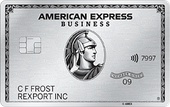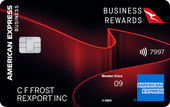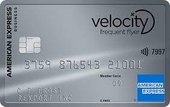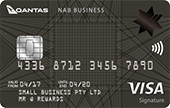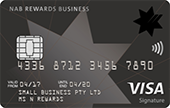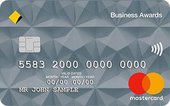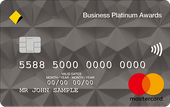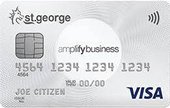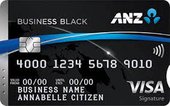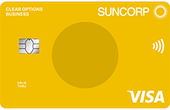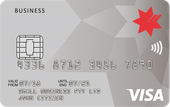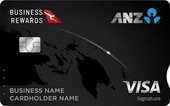Business credit cards have extra features to make your business life easier. Businesses of all sizes – from a sole trader to a company with many employees – can derive benefit from a dedicated business credit card. Besides offering many tools that personal credit cards just don’t have, they provide an opportunity for both business owners and employees to track business expenses and keep them completely separate from personal expenses. They can also save you money and simplify taxes.
Who can get a business credit card?
You can apply for a business card if your business has an Australian Business Number (ABN). A business credit card can be used by both micro businesses and large corporations (although the latter may be better served by a corporate credit card).
If you are applying for a credit card to use for your own business, the bank may check your credit score during the application.
Who is responsible for business credit card debt?
If you run a business and have an ABN but your business is not incorporated (i.e. not a company), you will be personally responsible for all transactions on your business card. You will have liability as an individual for the debt incurred by all primary and supplementary cards on the account.
Partnerships may be able to choose a 'joint and several liability' business card. This means that although all partners have agreed to be jointly responsible for the debt, in the event of a payment default the bank could, if it chose, pursue any single partner for the entire debt.
For more on this, read our guide to business credit card liability.
What are the benefits of business credit cards?
Larger credit limits
Business credit cards tend to have larger credit limits than personal ones, for obvious reasons. The expenses of a business are usually far larger than those of an individual or family. This means that you will need to have a very good personal credit history (for a business card with individual or joint and several liability), or that your business will need to demonstrate a history of both profitable operation (probably via supplying copies of tax returns when applying for the card) and timely payment to its creditors.
As well as a global credit limit for the account, it is possible to set individual limits for supplementary cards issued to employees.
For more about the benefits and drawbacks of raising your credit limit, click here.
Expense tracking and data exporting
One of the most useful features of most business card accounts is a superior expense tracking and reporting capability. Business expenses are now already separate from personal ones (in the case of a sole trader), but additional tracking tools are available on most types of business cards. Expenses for each supplementary card in each month can be listed in detail and in total, and the data can usually be exported to a spreadsheet or directly into your accounting software. For small businesses in particular, this can save hours or work at tax time.
Rewards and complimentary benefits
Business cards often come with the same kinds of rewards and benefits as those attached to personal credit cards: rewards points, frequent flyer points, complimentary travel insurance, airport lounge access and even free flights. These benefits can deliver real savings for your business. Rewards points can be exchanged for office equipment or employee incentive gifts, for example. If you or your employees travel frequently, frequent flyer points, travel insurance, lounge access or free flights will all reduce your business expenses.
Some cards offer travel insurance specifically tailored to business needs, including card account balance waiver or expenses for business trip completion by an alternative employee, in specified emergency circumstances.
Compare the business cards on this page to find one that is suitable for the size, structure, number of supplementary cards required and spending pattern of your business.
What to consider when you compare business credit cards
It is essential to understand the features available, and how to match them with the specific financial requirements of your business. This will enable you to find the card that is right for your circumstances. Make sure that you check the following:
- Available credit limit. The card you choose should have a credit limit that could cover all the monthly expenses of your business if necessary.
- Interest rate. Even if the card issuer gives you a large credit limit limit, you should still aim to clear the balance each month. However, the purchase rate applied to your credit card is still an essential feature to consider, since any ongoing debt incurs this interest rate. Your cash flow’s ups and downs may see you needing to use your line of credit from time to time.
- Interest-free days. Credit cards usually come with either 44 or 55 days interest free on purchases if there is no carried-over balance from the previous month. With 55 interest-free days, your business has longer access to free credit.
- Expense tracking functionality. Look for monthly statements listing each supplementary card’s expenditure in detail and in total, and the ability to export data to a spreadsheet or your accounting software for extra reporting flexibility and time-saving.
- Rewards program. If the card features a rewards or frequent flyer points program (such as Qantas Points), make sure it suits the way you and your staff spend, and offers rewards that can help reduce business costs. As a rule of thumb, ensure that the value of the benefits likely to be derived from the rewards program each year is at least equivalent to the annual fee.
- Sign-up bonus. If there are significant sign-up rewards or frequent flyer points on offer, there may be a possibility for a sizeable one-off reduction in your expenses. E.g. the bonus points may be enough for several free business flights.
- Complimentary benefits. Built-in free travel insurance for cardholders could provide serious cost savings for your business. (Read the insurance product disclosure statement , however, to make sure that the cover is sufficient for your needs.) Some business cards may offer a free domestic flight annually, or airport lounge access. It all adds up to either reduced expenses or a better experience for your employees.
- Introductory offers. Look out for introductory offers. Banks may offer introductory rates to new customers, such as low purchase interest rates for an initial period. This can be helpful for new businesses to make essential purchases, but you should be wary of how the deal changes at the end of the promotional period. Always check the revert interest rate and the offer expiry date. It may be that a card with a higher initial rate is better, because its ongoing, long-term rate may be lower. Balance transfers are typically not offered on business credit cards, although some banks may do run business balance transfer offers from time to time.
- Annual fee. Credit cards for businesses often have a higher annual fee than personal credit cards. This fee covers all the extra business-specific features, reward schemes, insurance policies and other benefits, and provides access to larger credit limits and greater spending power. Ensure that the annual fee is affordable and that the extras you are paying for are genuinely beneficial to your business.
Business credit cards vs business charge cards
Cards for business use come in two flavours: credit cards and charge cards.
A credit card for business, much like a personal credit card, has a definite credit limit as well as the option to defer payment of some of the purchases balance beyond the due date. Interest charges are incurred, but the available line of credit can prove very useful.
Business charge cards, on the other hand, do not have a fixed credit limit (although the credit provided is not limitless) and you will be expected to clear the balance in full each month, on or before the due date. The lack of a fixed limit offers extra flexibility for a business with seasonal or unpredictable purchasing spikes, but there is no option to postpone payment and pay interest.
Business credit cards vs corporate credit cards
Larger corporations will be most likely to opt for corporate liability cards. In this case the company is the entity responsible for the debt. Sizeable organisations may be better served by a corporate credit card account, with the possibility of issuing multiple cards on a single account to a larger number of employees.

